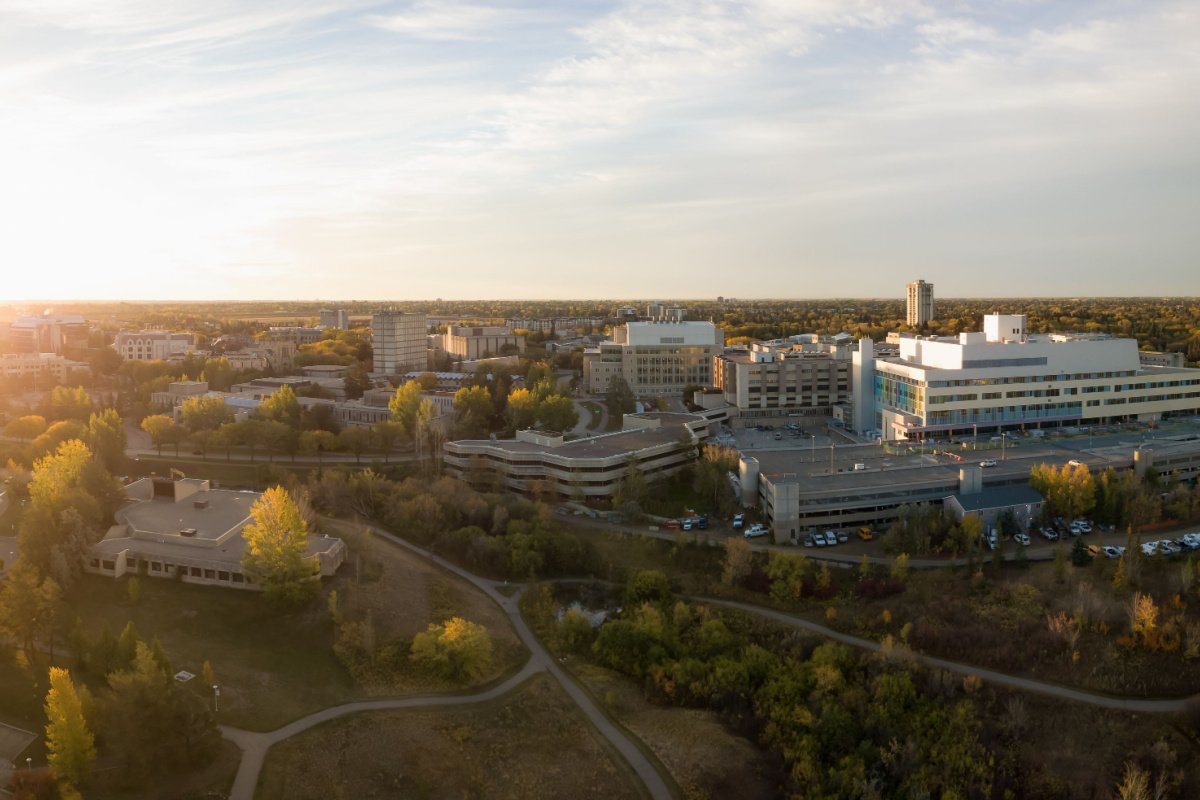Saskatchewan is a terrific destination for you and your family to call home because it provides all immigrants a good quality of life, a strong sense of community, and fruitful job possibilities. Saskatchewan offers a thriving arts and culture scene, beautiful provincial parks, and a wide range of sports and leisure activities. Its citizens benefit from free medical care and first-rate healthcare services. It also boasts a high standard of education and low costs of living.
About Saskatchewan
Indigenous peoples have lived in Saskatchewan for thousands of years. Europeans discovered the region in 1690 and settled there in 1774. In 1905, it was separated from the vast Northwest Territories, which up until that point had included most of the Canadian Prairies.
The only province without a natural boundary is Saskatchewan. However, the province is approximately shaped like a quadrilateral.
Where is Saskatchewan on the Map?
As a member of the Western Provinces, Saskatchewan is bordered on the west by Alberta, the north by the Northwest Territories, the east by Manitoba, the north-northeast by Nunavut, and the south by the states of Montana and North Dakota in the United States.

Economy and Industries

Since the late 19th century, the economy has been centered on agriculture and livestock production. Saskatchewan produces a significant amount of wheat, barley, and other grains, and only Alberta produces more beef. During the 20th century, oil drilling and natural gas extraction has also become important. Tourism, such as hunting, fishing, hiking, and camping, is also booming.
Saskatchewan is a center of life sciences and biomass activity, focusing on agriculture, agri-value, energy, forestry development, petroleum, natural gas, and more. Manufacturing in Saskatchewan produces a diverse range of items, the bulk of which are exported to markets throughout Canada and the world. Additionally, Saskatchewan's vast mineral resources, efficient regulatory framework, and attractive investment possibilities have attracted significant worldwide.
In terms of finding a job in one of these industries and being a part of Saskatchewan's economy, there are several in-demand occupations you can look through.
Climate/ Weather

Saskatchewan has four seasons: spring, summer, fall (or autumn), and winter. Understanding the weather will assist you in selecting proper clothing. Extreme temperatures are expected in Saskatchewan's climate.
Summer
Summers can be sweltering, reaching the high 80s ºF (30s ºC). Temperatures during the day are generally between (20 and 25°C), but they can get mid to upper 80s ºF (30s ºC). Therefore, you should dress comfortably and coolly.
Winter
Winter is bitterly cold, with January and February being the driest and coldest months. Temperatures can drop between -22 to -40°F (-30 to -40°C). Nighttime temperatures in January and February typically vary from 5 to -13°F (-15 to -25°C), with daytime temperatures ranging from 23 to 5°F (-5 to -15°C). Temperatures are also taken into account when calculating the "wind chill."
When high winds combine with cold temperatures, the weather becomes much colder than the thermometer indicates. For example, a temperature of 14°F (-10°C) with a wind speed of 40 km/h will feel like a temperature of (-21°C).
Cost of Living
Saskatchewan is an excellent province to live in, raise a family, and start or expand a business. Housing expenses are lower in Saskatchewan than in other large Canadian cities and most individuals can buy and own a home. As a result, the average family income is around $93,000. Saskatchewan residents also enjoy free public school under Canadian law.
In contrast to other Canadian provinces, there are no personal fees or taxes for essential health care. Additionally, the provincial sales tax of 6% is the lowest of any province that levies one. Commuting to and from work is also less expensive because the average commuting time inside large cities is roughly 20 minutes.
Demographics

Saskatchewan's population reached 1,194,803 as of July 1, 2022, an increase of 6,465 from April 1, 2022. The largest ethnic group is German, English, Irish and Scottish. There is some immigration, primarily thanks to the production of agricultural products in various fields. Overwhelmingly, 87% of the population speak English, with German and Aboriginal languages accounting for only 5%.
The majority of the population of Saskatchewan follows the Protestant and Catholic faiths. Still, as a multicultural society, many places of worship throughout the province cater to a wide selection of other religions.
Education
Until the 1940s, most primary and secondary schools were 1-room schoolhouses. Nowadays, Saskatchewan is far more developed, with 32 designated learning institutions (DLI), all excellent in their relevant fields.
The University of Saskatchewan and the University of Regina are among the top learning institutions in Canada, offering a varied selection of courses to both local and international students. Dedication to preserving and celebrating the Aboriginal culture is cultivated at The University of Saskatchewan, with business, arts and sciences, and many other courses designed to teach young people about the culture.
Major Cities
The southern plains portion of the province is home to most of the population, while the northern, predominantly wooded part is sparsely inhabited. Saskatoon, or the province's largest city, Regina, is where most people reside. Prince Albert, Moose Jaw, Yorkton, Swift Current, North Battleford, Melfort, and the border city of Lloydminster are among the other major cities.
Regina
Regina is the capital city. The Aboriginal peoples and native wildlife of Canada are featured in displays at the Royal Saskatchewan Museum. It can be found in Wascana Centre, a park that encircles Wascana Lake. The MacKenzie Art Gallery, with works from all over the world, is also in the park. The lakefront Saskatchewan Science Centre is crammed with interactive exhibits.
Saskatoon
Saskatoon is a city in Saskatchewan, Canada, on the South Saskatchewan River. Wanuskewin Heritage Park, located north along the riverbank Meewasin Trail, features displays about indigenous culture. Native fauna inhabits the prairie grasslands of Beaver Creek Conservation Area on the trail's southern portion.
Things To Do in Saskatchewan

Several cultural options are available, including winter festivals, symphony performances, and historical commemorations. Saskatchewan offers year-round leisure. The province's many lakes are ideal for canoeing, boating, swimming, and ice fishing. Many winter activities are available, including hills and slopes for skiing, snowboarding, and tobogganing. Camping and picnics are permitted in many provincial parks. In addition, many communities have parks, play areas, and outdoor wading pools for children.
The major attractions in Saskatchewan are its 100,000 pristine lakes, thousands of miles of beautiful rivers and streams, and abundant forests full of wildlife. Camping, hiking, canoeing/kayaking, hunting, and fishing opportunities are almost limitless.
Immigration/Dedicated Visas
Saskatchewan Nominee Programs
The Saskatchewan Immigrant Nominee Program (SINP) accepts applications under the following categories:
International Skilled Worker Category
The International Skilled Worker Category of the SINP allows the province to nominate skilled people with the necessary education, experience, and language skills to establish themselves in Saskatchewan effectively.
This subcategory is for skilled people to who a Saskatchewan firm has already offered a job. The SINP must accept the employment offer before the candidate may apply. Otherwise, the application would be denied immediately. To have the position evaluated, the Saskatchewan employer must first register on the SINP employer website. Once the post has been authorized, the employer will obtain a Job Approval Letter, a copy of which must be provided with the candidate's SINP application.
International Skilled Worker - In-Demand Occupations
This subcategory is for highly skilled people with experience in a high-demand occupation in Saskatchewan. Under this subcategory of International Skilled Worker immigration, no employment offer in the province is necessary.
Express Entry for International Skilled Workers in Saskatchewan
This subcategory allows the province to nominate people who are already in the Immigration, Refugees, and Citizenship Canada (IRCC) Express Entry pool and have the necessary education, skilled work experience, language ability, and other factors to help them settle and integrate into Saskatchewan's labor market and communities.
Because candidates are chosen from the federal Express Entry pool by the province, all candidates must be eligible for one of the three federal economic immigration programs:
- Federal Skilled Worker
- Federal Skilled Trades
- Canadian Experience Class
Saskatchewan Experience Category
This SINP category allows foreign employees in the province for at least six months to immigrate permanently to Saskatchewan if they get a job offer from their present employer. Candidates must work in Canada on a valid work visa and genuinely intend to establish themselves economically in Saskatchewan. This provincial nominee immigration category has six sub-categories:
- Skilled worker with current work permit,
- Semi skilled agriculture worker with current work permit,
- Health professionals,
- Hospitality sector project,
- Long haul truck driver project, and
- Students.
Regardless of the subcategory, the SINP must accept the employment offer before the candidate may apply; otherwise, the application will be refused. To have the position evaluated, the Saskatchewan employer must first register on the SINP Employer website. Once the post has been authorized, the employer will obtain a Job Approval Letter, a copy of which must be provided with the candidate's SINP application.
Entrepreneur and Farm Category
The SINP Farm Owners and Operators sub-category allow individuals and their families to come to Saskatchewan to acquire and run a farm.
This subcategory is intended to attract potential immigrants with proven farming expertise, significant wealth to engage in a farming enterprise, and a genuine desire to live in Saskatchewan. Applicants in this subcategory must undertake an exploratory visit to Saskatchewan before applying for the SINP. The applicant will meet with a representative of the SINP during this visit, which will last at least five working days.



